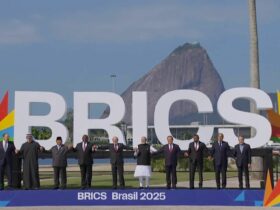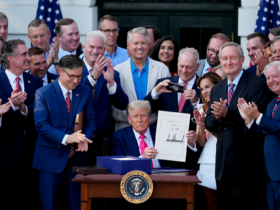The coronavirus continues to test the limits of previous social systems. The virus affects everyone and every aspect of life. It has triggered the questioning of all conventional habits and stances concerning almost every aspect of life, from international relations to the organization of the nation-state, from social relationships to the economy, the role of science and art in our lives, from lifestyle to social ethic, from freedoms to social discipline.
The urge to find a solution necessitates the adoption of an approach that deals with the interaction of all the factors involved in its entirety. The virus that has shaken the world has also brought about a search for a new paradigm. While the devastating consequences of the pandemic are still on a rise in many places, forecasts concerning the post-coronavirus world are climbing to the forefront of the global agenda. One of the most important contradictions which the virus brought to surface in this context, is the relationship between spontaneity and intervention in social progress or, in other words, the relationship between the “Invisible Hand” and the “Visible Hand”.
CAPITALISM AND DESIGN
Capitalist production relations were born within the context of the feudal system. The expansion of the commodity production due to various reasons led to a wider use of paid labor in production, going beyond the constraints imposed by feudalism. This process emerged spontaneously rather than being the consequence of design. Everything written about capitalism, be it by classical or neoclassical economists or by Marxists, was written after this system reached a certain level of maturity. All these works are concerned with the “discovery” of the workings of an existing system and not with the “invention” of a new system. In the transition from feudalism to capitalism, the element of intervention is inherent to democratic revolutions, through which the bourgeoisie came to power and made capitalism the dominant mode of production. The concept of an “Invisible Hand”, introduced by Adam Smith, describes the spontaneity of the functioning of capitalist markets.

Wikipedia
THE BIRTH OF THE NEED FOR A ‘VISIBLE HAND’
The socialist mode of production, on the other hand, did not come into being spontaneously from within the capitalist system. Socialism was put forward as a scientific-philosophical prediction in the 19th century. A huge amount of literature on socialism before this system became a reality in any corner of the world. History had not come to an end, but humanity had reached an end of sorts regarding the spontaneity of the development of production relations. In transition to socialism and then to a classless society, the transformation of the production relations is to be continually planned under the guidance of science, the path to be followed is to be paved, and the necessary instruments of implementation created. Doing so requires intervention by a “visible hand”. Every country faces the challenge of determining its own path, as the circumstances and levels of development of developing countries differ from each other. In these countries, the visible hand is the nation-state.
SPONTANEITY AND INTERVENTION UNDER THE IMPERIALIST SYSTEM
Imperialism, on the one hand, baptizes “spontaneity” in order to ensure that markets are guided sheerly by private interests, restricting the state’s intervention in the market as much as possible. On the other hand, imperialism has been using the imperialist state apparatus as the most powerful means of intervention in history against oppressed nations.
The fact that some countries initially adopted a herd immunity approach against the pandemic is nothing but a reflection of market spontaneity into the health sector. On the other hand, the motto summarizing the intervention of the imperialist system in the developing world is “Laissez-pas-faire, Laissez-pas-passer” ([do] not let [them] do, [do] not let [them] pass).
SUBJECTING PRIVATE INTERESTS TO PUBLIC INTERESTS
The current level of the productive force in the developing countries requires an appropriate use of incentives based on private interest in order to unleash the nation’s production potential at a maximal level. This requirement will last until an “abundance society” is reached, while shrinking gradually in the meantime. The crucial point here is to subject private interests to public interests. The visible hand’s task is to orient the society and the economy along public interests and to accord private interests with this goal. The key to success of a mixed economy lies in achieving such harmony.
The correct handling of the relationship between intervention and spontaneity both in terms of content and scale, is also a decisive factor for success. If the lungs and the heart in a human body required continuous conscious interference to keep functioning, then it would probably not be possible for a person to do anything but focus on “pumping and blowing” in order to continue to live. Thus, it is also important to determine the priorities and the contents of the areas of intervention with a comprehensive approach that takes all the interactions in the economic and social development into account.
A DRILL FOR THE ‘VISIBLE HAND’
The fight against the Coronavirus also constitutes a drill for deploying the “visible hand” properly, in addition to protecting the public health. The gain, which may possibly compensate for the devastation of the pandemic in its aftermath, will be the nations’ ability to convert what they learned in their own experience concerning the function of the “visible hand” into a permanent material power.

















Leave a Reply